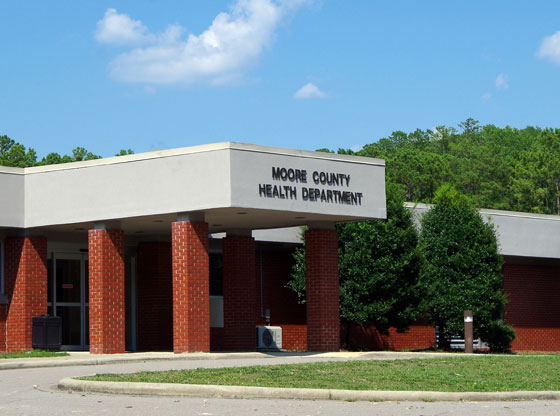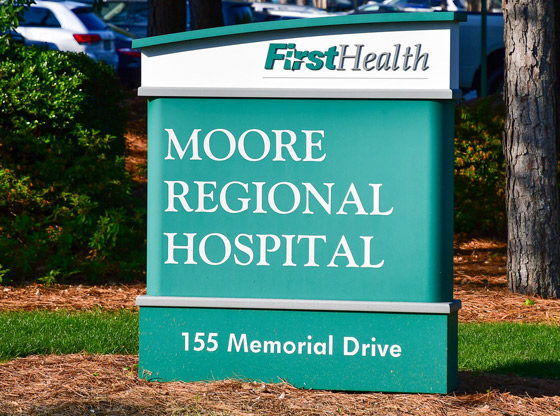On Friday, Sept. 2, Moore County Public Health on Friday has confirmed the first case of monkeypox in the county. The individual who tested positive is currently isolating at home and close contacts have been notified. To protect patient privacy, no additional information about the individual will be shared.
Monkeypox is a rare but potentially serious viral illness that typically involves flu-like symptoms initially, swelling of the lymph nodes and a rash that typically appears later and includes bumps that are initially filled with fluid before scabbing over.
It typically lasts two to four weeks and is spread through close physical contact, such as skin-to-skin contact or prolonged face-to-face contact with someone that has monkeypox. It is not a sexually transmitted infection but can be spread through intimate skin-to-skin contact. It can also be spread through contact with items that have been used by someone with monkeypox.
To date, there have been 346 confirmed monkeypox cases in North Carolina. The state’s first case was identified on June 23.
“Monkeypox infections continue to be rare but it is important for everyone to be aware of the symptoms,” said Interim Health Director Matt Garner. “If you’ve had close contact with someone who has been diagnosed with monkeypox, or have symptoms of monkeypox including unexplained bumps, sores, blisters, or pimples that look like monkeypox you should contact your healthcare provider or the health department.”
Vaccines are available at no cost to protect against monkeypox or to reduce disease severity for those who self-identify as meeting the following criteria:
• Anyone who had close contact in the past two weeks with someone who has been diagnosed with monkeypox, or
• Gay or bisexual men or transgender individuals who report any of the following in the last 90 days:
o Having multiple sex partners or anonymous sex
o Being diagnosed with a sexually transmitted infection
o Receiving medications to prevent HIV infection (PrEP)
Individuals may call the health department at 910-947-3300 to request a vaccination appointment if they meet the criteria. In addition to receiving the vaccine if you are eligible, health officials encourage the community to take the following steps to prevent the spread of monkeypox:
• Know the symptoms and risk factors of the virus.
• Avoid skin-to-skin contact with people who are showing a rash or skin sores, and especially if they have a confirmed case of monkeypox.
• Be aware that in areas with known spread, participating in activities with close, personal, skin-to-skin contact may pose a higher risk of exposure.
• If you were recently exposed to the virus, contact your healthcare provider or local health department to talk about whether you need a vaccine to prevent disease.
• Monitor your health for fever, chills, swollen lymph nodes and a new, unexplained rash.
• If you develop symptoms, keep any rashes or lesions covered and avoid contact with others (including sex and being intimate) until you have been evaluated by a medical provider.
The CDC also encourages individuals to temporarily change some behaviors that may increase risk of being exposed, including safer sex practices. More information is available on the CDC’s website here.
“Moore County Public Health, along with our county’s healthcare providers, have been working in concert with the Centers for Disease Control and the North Carolina Department of Health and Human Services to investigate and monitor the current national outbreak and its impacts locally,” said Garner. “Our priorities are to identify cases quickly, notify contacts, and offer vaccine to anyone who may have been exposed.”
Testing is available at the Moore County Health Department for eligible individuals by appointment only. Individuals can call 910-947-3300 to request an appointment for testing.
To learn more about monkeypox, visit the North Carolina Department of Health and Human Services (NCDHHS) website at https://www.ncdhhs.gov/divisions/public-health/monkeypox.
Contributed.

















